Mercedes Vito Transporter vs Toyota Proace City - Differences and prices compared
Compare performance (237 HP vs 136 HP), boot space and price (28800 £ vs 20800 £ ) at a glance. Find out which car is the better choice for you – Mercedes Vito Transporter or Toyota Proace City?
Costs and Efficiency:
When it comes to price and running costs, the biggest differences usually appear. This is often where you see which car fits your budget better in the long run.
Toyota Proace City has a evident advantage in terms of price – it starts at 20800 £ , while the Mercedes Vito Transporter costs 28800 £ . That’s a price difference of around 7984 £.
Fuel consumption also shows a difference: Toyota Proace City manages with 5.30 L and is therefore evident more efficient than the Mercedes Vito Transporter with 6.80 L. The difference is about 1.50 L per 100 km.
In terms of energy consumption, the advantage goes to the Toyota Proace City: with 18.10 kWh per 100 km, it’s somewhat more efficient than the Mercedes Vito Transporter with 21.20 kWh. That’s a difference of about 3.10 kWh.
As for electric range, the Mercedes Vito Transporter performs distinct better – achieving up to 474 km, about 131 km more than the Toyota Proace City.
Engine and Performance:
Power, torque and acceleration say a lot about how a car feels on the road. This is where you see which model delivers more driving dynamics.
When it comes to engine power, the Mercedes Vito Transporter has a clearly edge – offering 237 HP compared to 136 HP. That’s roughly 101 HP more horsepower.
In terms of top speed, the Toyota Proace City performs distinct better – reaching 186 km/h, while the Mercedes Vito Transporter tops out at 140 km/h. The difference is around 46 km/h.
There’s also a difference in torque: Mercedes Vito Transporter pulls clearly perceptible stronger with 500 Nm compared to 300 Nm. That’s about 200 Nm difference.
Space and Everyday Use:
Beyond pure performance, interior space and usability matter most in daily life. This is where you see which car is more practical and versatile.
Seats: Toyota Proace City offers distinct more seating capacity – 7 vs 5.
In curb weight, Toyota Proace City is decisively lighter – 1366 kg compared to 1916 kg. The difference is around 550 kg.
In maximum load capacity, the Mercedes Vito Transporter performs decisively better – up to 6600 L, which is about 3907 L more than the Toyota Proace City.
When it comes to payload, Mercedes Vito Transporter minimal takes the win – 884 kg compared to 869 kg. That’s a difference of about 15 kg.
Who wins the race in the data check?
The Mercedes Vito Transporter is decisively ahead in the objective data comparison.
This result only shows which model scores more points on paper – not which of the two cars feels right for you.
Costs and Consumption
View detailed analysis
Engine and Performance
View detailed analysis
Dimensions and Body
View detailed analysis
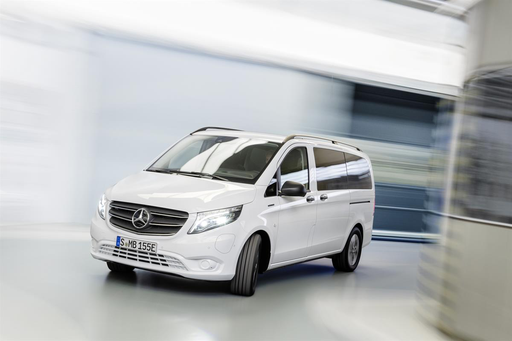
Mercedes Vito Transporter
Mercedes Vito Transporter
The Mercedes Vito Transporter is a supremely practical workhorse that blends Mercedes refinement with van-like utility, making long days on the road feel surprisingly civilized. With a cleverly thought-out interior and a drive that won’t wear you out, the Vito is the ideal choice for businesses that want capability without sacrificing comfort — and yes, it still looks sharper than most vans at a client meeting.
details
Toyota Proace City
The Toyota Proace City is a clever compact workhorse that blends van practicality with passenger comfort, turning daily deliveries or weekend DIY runs into a surprisingly civilised affair. It won't set your pulse racing, but its easy driving manners, flexible interior and low-hassle ownership make it a smart pick for buyers who value usefulness over flash.
details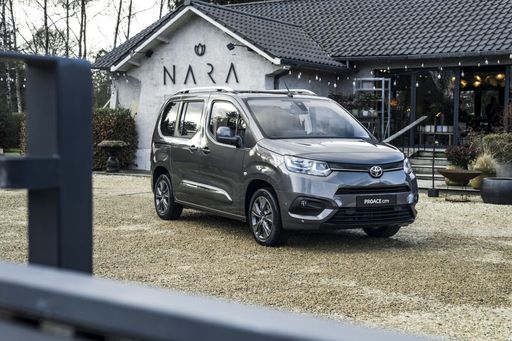
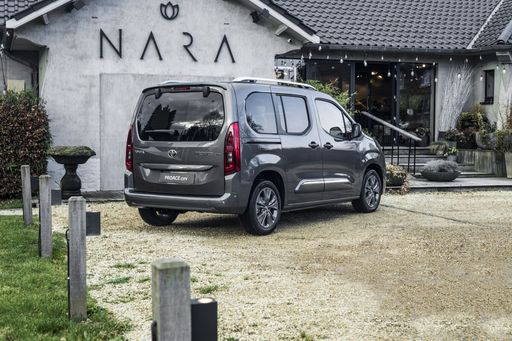
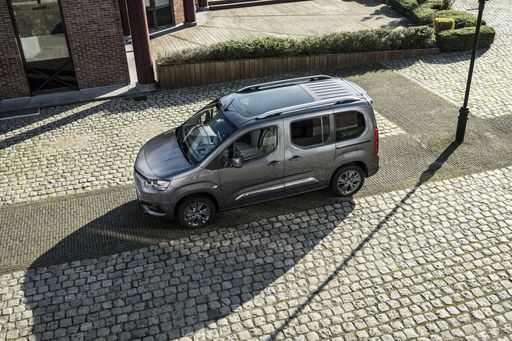
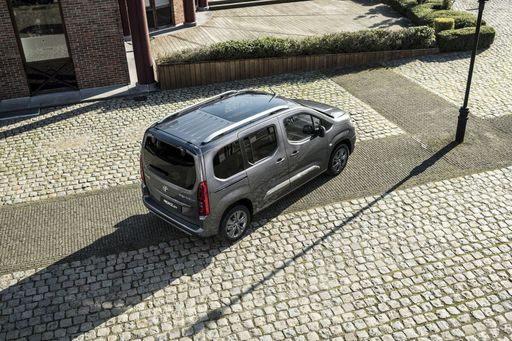
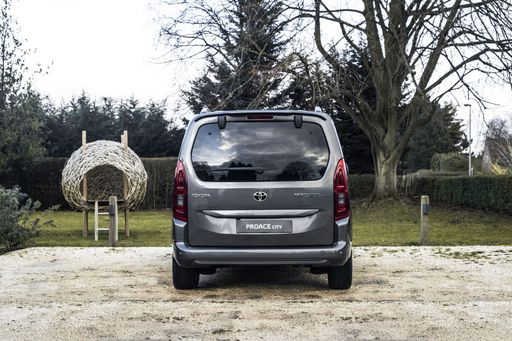
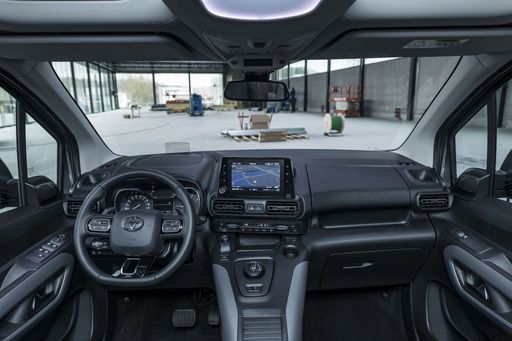
Costs and Consumption |
|
|---|---|
|
Price
28800 - 51600 £
|
Price
20800 - 44100 £
|
|
Consumption L/100km
6.8 - 9.7 L
|
Consumption L/100km
5.3 - 6.3 L
|
|
Consumption kWh/100km
21.2 - 26.5 kWh
|
Consumption kWh/100km
18.10 kWh
|
|
Electric Range
304 - 474 km
|
Electric Range
343 km
|
|
Battery Capacity
60 - 90 kWh
|
Battery Capacity
-
|
|
co2
0 - 222 g/km
|
co2
0 - 146 g/km
|
|
Fuel tank capacity
57 - 70 L
|
Fuel tank capacity
50 - 61 L
|
Dimensions and Body |
|
|---|---|
|
Body Type
Cargo Van
|
Body Type
High Roof Estate
|
|
Seats
2 - 5
|
Seats
5 - 7
|
|
Doors
4
|
Doors
4 - 5
|
|
Curb weight
1916 - 2518 kg
|
Curb weight
1366 - 1664 kg
|
|
Trunk capacity
-
|
Trunk capacity
322 - 912 L
|
|
Length
4895 - 5390 mm
|
Length
4401 - 4751 mm
|
|
Width
1928 mm
|
Width
1848 mm
|
|
Height
1910 - 1945 mm
|
Height
1812 - 1818 mm
|
|
Max trunk capacity
3100 - 6600 L
|
Max trunk capacity
2126 - 2693 L
|
|
Payload
547 - 884 kg
|
Payload
525 - 869 kg
|
Engine and Performance |
|
|---|---|
|
Engine Type
Diesel, Electric, Petrol
|
Engine Type
Petrol, Diesel, Electric
|
|
Transmission
Manuel, Automatic
|
Transmission
Manuel, Automatic
|
|
Transmission Detail
Manual Gearbox, Reduction Gearbox, Automatic Gearbox
|
Transmission Detail
Manual Gearbox, Reduction Gearbox, Automatic Gearbox
|
|
Drive Type
Rear-Wheel Drive, Front-Wheel Drive, All-Wheel Drive
|
Drive Type
Front-Wheel Drive
|
|
Power HP
102 - 237 HP
|
Power HP
102 - 136 HP
|
|
Acceleration 0-100km/h
-
|
Acceleration 0-100km/h
11.5 - 13.2 s
|
|
Max Speed
120 - 140 km/h
|
Max Speed
135 - 186 km/h
|
|
Torque
270 - 500 Nm
|
Torque
205 - 300 Nm
|
|
Number of Cylinders
4
|
Number of Cylinders
3 - 4
|
|
Power kW
75 - 174 kW
|
Power kW
75 - 100 kW
|
|
Engine capacity
1950 - 1999 cm3
|
Engine capacity
1199 - 1499 cm3
|
General |
|
|---|---|
|
Model Year
2024 - 2025
|
Model Year
2024 - 2025
|
|
CO2 Efficiency Class
G, A
|
CO2 Efficiency Class
E, A
|
|
Brand
Mercedes-Benz
|
Brand
Toyota
|
What drive types are available for the Mercedes Vito Transporter?
The Mercedes Vito Transporter is available as Rear-Wheel Drive, Front-Wheel Drive or All-Wheel Drive.
